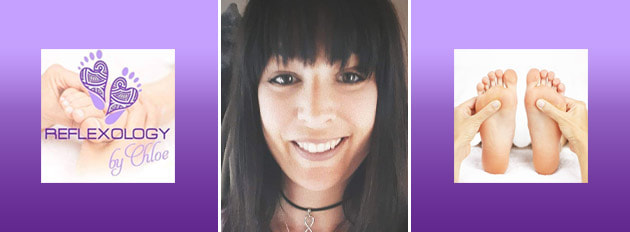|
As far back as I can remember, I have been a people pleaser, but my first memory of true anxiety was when I started dance college. Completely stepping outside of my comfort zone, away from the path my school friends had taken and into a world where everybody else seemed so cool, calm and together. The anxiety has come in waves since then, I had bad moments and good moments, but I always managed to push through it and never let it stop me doing the things I wanted in life. I refused to let it paralyse me into avoiding the things that made me truly happy. Then I had a baby. I was so cool and calm during pregnancy. Throughout my twenties, I had developed coping strategies of yoga, reiki, meditation and carrying crystals to keep myself calm and centred (it was a bit of a running joke with friends that I was a secret hippy!), and I carried this on throughout my pregnancy. I enrolled in hypnobirthing sessions and sat back and waited to be the cool calm mummy I wanted to be. Fast forward 4 years and I look back at my pregnancy wistfully, wishing I could be as calm now as I was then. Postnatal anxiety is not talked about as much as postnatal depression, but it is a thing and it hit me hard. Throughout the 4 years of my little boy's life, it has come and gone in waves. Sometimes I felt like I had a lid on it, but more frequently I felt constantly paralysed with fear that something bad was going to happen to him. I met Suzi when she booked in for a Reflexology session with me, and during her session we began talking about her work. The mention of Hypnotherapy piqued my interest and in the back of my mind I knew it was something that I needed to try. I started off with eight weekly sessions with Suzi. I had no idea what to expect, as all I had known of hypnosis in the past was the comedy acts you see on tv or in holiday resorts. I wasn’t even sure that I “could” be hypnotised, but to be honest, by this point, I was willing to try anything to help myself feel better. A session with Suzi always starts with listing the positive things that have happened that week. In the past, I have always prided myself as being a positive person, but speaking to Suzi made me realise I had been slipping into quite a negative mindset, which is so easy to do without realising. Listing positives seems like such a simple thing to do, but I found that doing this each week during my session really trained my mind to focus on all the good things that were happening around me. After this, we would talk about how my week had been in general and set goals/tasks that centred around little things that could improve my all round general well-being. After this we go ahead with the relaxation. I have done a lot of guided meditations in the past and in the beginning, this is what hypnotherapy mostly felt like. I sat back, tried to clear my mind, and let Suzi’s words sink in and relax me. Afterwards, I felt calm and very sleepy - I almost never want to wake up and leave the room once the session is finished! After a few weeks of these sessions, I realised I was feeling calmer and less stressed. I started to realise that, although the sessions felt similar to my guided meditations, the repetition and the wording of the relaxations were most definitely having an effect on the workings of my mind, and each time I went, I was sinking into an even deeper “trance”. Towards the end of my eight weeks of sessions, there was definitely a breakthrough moment, where I could really start to see the light at the end of the tunnel. It took a lot of baby steps to get there, but those weeks of baby steps made a huge change to the workings of my mind and my ability to deal with stressful situations. I now see Suzi roughly every two weeks, and she keeps me on the straight and narrow! Would I say my anxiety has gone? No, in a way a small part of it is who I am. But I am in a much better place than I was at the end of last year. If I feel those thoughts and worries spiralling out of control again, I know that a session with Suzi will leave me feeling calmer and back on track. Guest blog written by Chloe from Reflexology by Chloe. If you would like to contact Chloe, you can reach her here: reflexologybychloe@outlook.com
0 Comments
We often take our health and wellbeing for granted without stopping to think of how life could feel if we were to become ill. While we may exercise more and eat better to benefit our physical health it is often our mental health that is neglected.
With 1 in 4 people being affected by mental ill health at some point in their lives, it is more important than ever that we treat mental and physical health equally, providing education, training and support in the workplace. Would it surprise you to know that that the most common cause of long term absence from work is Mental ill heath at a whopping 56% in 2018. *With the top cause of stress-related absence being workloads and/or volume of work. While technology has helped make working quicker, easier and more efficient it also seems it is having a long term effect on stress and mental ill health in our lives. In 2017, The Government recognised that there is a growing crisis and commissioned Lord Stevenson and Paul Farmer (Chief Executive of Mind) to independently review the role employers can play to better support mental health conditions in the workplace. The “Thriving at Work” report sets out a framework called “Core Standards” that should be put into place. These standards are to help employers improve the mental health of their organisation and enable individuals with mental health conditions to feel supported. Organisations are being encouraged to establish new health and wellbeing policy to address the workplace standards for their people, with one of these initiatives being the introduction of regulated First Aid for Mental Health courses. The benefits of investing in health and wellbeing have shown better employee morale and engagement (44%), a healthy more inclusive culture (35%) and lower sick absences (31%).1 These courses aim to raise awareness, knowledge and qualifications for individuals in the workplace. Qualifications include OFQUAL regulated Level 2 qualifications in First Aid for Mental Health, similar to the First Aider’s role within the workplace. Health and Wellbeing is a topic we are very passionate about here at Topaz Health Training and have undertaken instructor training qualifications to offer the following courses from Mar 2019:
To find out more about upcoming courses and how you can help improve mental health in your organisation contact us today. Source *: Health and Well-being at Work Survey 2018. www.cipd.co.uk/healthandwellbeing2018 |
Topaz Health Training BlogViews, news and blogs about health, fitness and exercise courses and qualifications. Archives
December 2023
Categories
All
|
CoachingFirst Aid Courses |
FIRST AID For Mental Health Qualifications |
BlogEnrolment |
Contact UsEmail: info@topazhealth.co.uk
Telephone: 01480 456333 Address: 49a High Street Huntingdon Huntingdonshire PE29 3AQ Connect |
Payment |
Terms & Conditions |
Topaz Health Training deliver wellbeing coaching and training in First Aid for Mental Health Qualifications, First Aid at Work, Emergency First Aid at Work Courses and Health Qualifications for the Health, Fitness & Exercise industry, local businesses and voluntary organisations in Huntingdon, Cambridge and surrounding counties.



 RSS Feed
RSS Feed